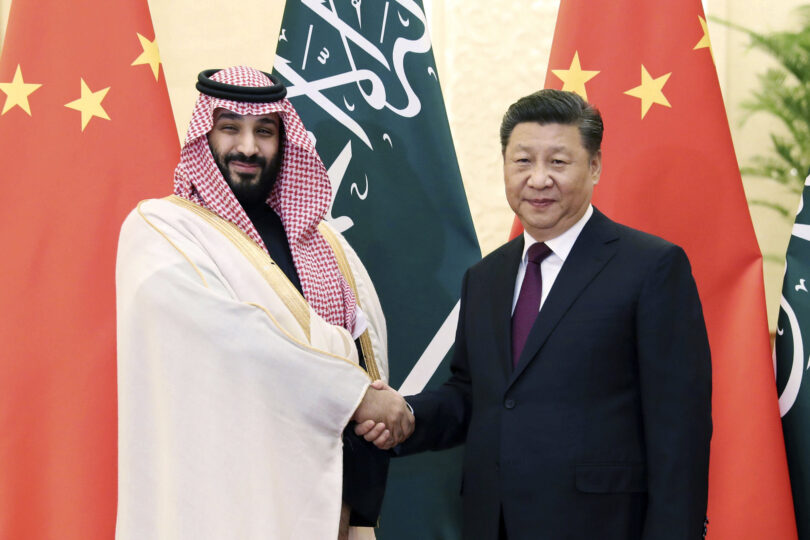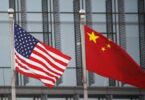Dmitry Kosyrev
And just now the intellectual “heavy artillery” has been brought up, explaining all the possible consequences of the visit of the head of the Chinese state to the Middle East. The visit, in fact, was December 7-10, but the event turned out to be so large that it took a distance of almost a couple of weeks to consider it in its entirety. And the conclusions that have begun to be formulated only now are quite worthy of returning to the topic.
Here, for example, is the verdict of the Council for Middle East Policy in Washington: the point is not that the Arabs want to “make a U-turn” from the US towards China. No, everything is more complicated and interesting: China has “usurped” (that is, in fact, stolen from America) the “monogamous nature” of US-Saudi and, in general, US-Arab relations.
To some, this may seem like a trifle, but for the United States, this is not a trifle at all, but a shake-up of the foundations. The fact is that for many decades a “monogamous” foreign policy for this country is not even subject to discussion, this is the norm of relations in principle with any state. This is translated into Russian as follows: “if you are with us, then with no one else” or even “who is not with us is against us.” And then some sheikhs begin to explain to America that this is normal for them: no monogamy, there can be two wives at the same time (or three, and so on).
The fact is that both Saudi Arabia and other Arab states, whose leaders met during the visit of Xi Jinping, do not at all dec-lare that they want to refuse cooperation with Washin-gton, including military cooperation, for the sake of China. They put the question differently: it’s time to deal with the US and China at the same time. And this is a revolution, partly because the life of many countries and peoples in a multipolar world – it apparently will be, and even already is – is like that. When they don’t voluntarily break up with anyone, they don’t unconditionally join anyone, but try to get something useful from everyone.
A survey of experts from around the world recently appeared on this topic in the Hong Kong newspaper South China Morning Post. And there is the same thought: for example, Clemens Chai from the National University of Singapore says that the Arabs, not wanting to side with the West in the Ukrainian conflict or refusing to increase oil production to enhance the effect of sanctions against Russia, want to become “middle powers in a multipolar world order”.
And what does this mean specifically, why did the Arabs need it – just for the sake of the desire to keep up with modernity? And here a lot of specifics emerge in various media, including showing that, in fact, during Xi Jinping’s trip, it was not only about the Middle East. We also talked about Africa and some countries that are neighbors of the Middle East. In the vast region, a completely natural coincidence of interests of both the Chinese and the Arabs of the Persian Gulf was formed. After all, the Middle East and North Africa are actually one system, and south of North Africa is the one that is sub-Saharan, and they are also connected. Just as smoothly, the Middle East is moving into the region where Iraq, Iran, Afghanistan, and Pakistan are. And everywhere the same picture. Both Arabs and Chinese are actively working there, and they do not imply any “monogamy”, but exactly the opposite:
According to the London-based International Institute for Strategic Studies, six wealthy Gulf states provided $231 billion in financial assistance to a dozen countries in the Middle East and North Africa from 1974 to 2022. During the same time, the West, that is, in this case, the IMF, has lent only 81 billion to the same countries. That is, the rich Arabs seem to have turned out to be the main players in their own region.
But it is not so. There is no longer financing of neighbors, but investments in Africa, which is south of the Sahara. The same Gulf States have invested 102 billion there. But China, the main donor of the continent, is in the first place in this part, followed by the US and the EU, the Arabs are only fourth. Approximately the same picture separately with Egypt, Algeria, Iraq and Pakistan. Everywhere China comes first. It is also the largest trading partner and financier in the sub-Saharan region. China overtook America in this region (only in terms of investments) back in 2013, and it invests twice as much as the United States.
Interestingly, immediately after Xi’s trip to Saudi Arabia, a concerned US ho-sted a summit in Washin-gton with African leaders. It was announced there that America wants to invest $55 billion in the region over three years. And who would refuse, but this is not the most spectacular amount for Africa against the backdrop of long-standing and hard work of the Chinese and Arabs there.
Note that it makes no sense for them to compete with each other for influence in this and other regions. The Arabs have oil, gas and money. The Chinese also have money, but no oil and gas, but they have experience in building infrastructure in the region to speed up trade with China, for example. And then there’s plenty of top-notch technology. So it makes perfect sense for the Gulf States to coordinate efforts with China without any dramatic denial of cooperation with the West.
This is somewhat reminiscent of the essence of relations between Moscow and Beijing in Central Asia (within, for example, the Shanghai Cooperation Organization). Our opportunities and interests with China complement each other in the most natural way. And you have to be a person strongly poisoned by the American style of thinking (“you are either with us or against us”) in order to see in this region, against all odds, the rivalry between Moscow and Beijing, their struggle with each other for influence.
Here we must recall the idea of economic and any other divorce with China, which has been fashionable in the United States for several years now (since we have begun to use marital comparisons). Ideally, at least 30 ideologically completely Western countries should form not only an ideological, but also an economic bloc – and crush competitors (and this is China with Russia and other partners) in the competition. But if not ideally, but in reality, then, for example, in Germany, the Munich Institute for Economic Research calculated how much a complete divorce from the Chinese economy would cost the country. The result is not a boring multi-digit figure, but something better: the “six Brexit” formula. That is, the damage will be six times greater than the loss of the UK during the exit from the European Union, and that – from the exit of the UK.
The picture of the world as a result turns out to be quite understandable: it is unprofitable for many countries when someone imposes on them a monopoly on literally everything – from security to the economy. And at the slightest chance, they try to work with everyone, and not choose someone one.
All these realities are beginning to squeeze the United States. During the aforementioned African summit in Washington, a reassuring flash appeared in the speeches a couple of times: no, America is by no means forcing you to choose between yourself and China on an “either-or” basis. But all the same, behind this promise, a silent and formidable “however” is felt.







